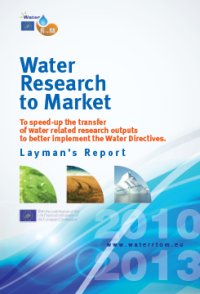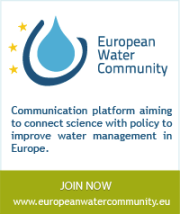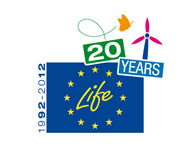WATERCHANGE
| Output characterisation | |
| OUTPUT SENTENCE | How to consider global change in the management of water resources |
| OUTPUT TYPE | methodology |
| WATER TOPIC | Management process |
| KEYWORDS | impacts of global change on water resources, resources planning |
| KEYWORDS TYPE | Methodology |
| MARKET NEED TAILORED | The output supports water and basin agencies in their planning and decision making in the context of global change. The tool aim to give recommendations to contribute to the implementation of environmental policies and comply with the Water Framework Directive. |
| OUTPUT DESCRIPTION | The Water Change project developed a methodology and a modelling tool (Water Change Modelling System – WCMS) to assess impacts of global change on water resources management and evaluate adaptation measures, to support and ease future planning. The different steps include global change scenario development, impact analysis and adaptation strategy evaluation through cost benefit analysis. The output of the project is a decision support tool which aims to help in decision making in the context of global change and better estimate the impacts of global change in long term water resources management. In the context of this study, global change is defined as all the anthropogenic changes affecting directly or indirectly the quantity and quality of water influencing the sustainable management of water resources. The methodology developed was applied to a case study: the Llobregat River Basin in Catalonia, Spain. |
| STATE OF DEVELOPMENT | The Water Change Modelling System has been developed as well as the methodology for global change impact assessment. The tool has been used for the Llobregat river basin case study, impacts have been quantified and adaptation strategies evaluated. |
| INNOVATIVE ASPECTS AND ADVANTAGES | The model developed could be used directly by basin agencies, as a decision support tool in the medium and long term water resources planning. Adaptation strategies can be weighed by decision makers thanks to the cost benefit analysis methodology proposed, which gives concrete support to the targeted authorities. |
| INTELLECTUAL/INDUSTRIAL PROPERTY RIGHTS | There are intellectual property rights for CETaqua( Water Technology Centre) and CRAHI (Centre of Applied Research in Hydrometeorology for the tools and data and they should be made accessible under reasonable commercial conditions. CETaqua – CRAHI – |
| POTENTIAL USERS/CLIENTS | Water agencies, Basin agencies, Public authorities |
| BUSINNESS CASE | Yes |
| Estimation of risks | |
| Steps ahead | |
| NEXT STEPS TO ACHIEVE THE STATUS 'READY TO USE' |
|
| TYPE OF PARTNER FOR THE NEXT DEVELOPMENTS | *Technical cooperation – consultant engineers to do the knowledge transfer and adapt the WCMS to other basins (especially outside Spain) |
| TASKS TO BE PERFORMED |
|
| Estimation of ressources | |
| Contact | |
| TECHNICAL CONTACT | Laurent Pouget - Tel. 93 312 48 25 * *Cetaqua, Centro Tecnológico del Agua *Carretera d'Esplugues 75 * 08940 Cornellà de Llobregat * *info@life-waterchange.eu * http://www.life-waterchange.eu/ |
| COUNTRY | SPAIN |
| WATER RTOM CONTACT | Amphos21 |
| Background | |
| PROJECT ACRONYM | WATERCHANGE |
| PROJECT DESCRIPTION | The Water Change project developed a methodology and a modelling tool (Water Change Modelling System – WCMS) to assess impacts of global change on water resources management and evaluate adaptation measures, to support and ease future planning. The different steps include global change scenario development, impact analysis and adaptation strategy evaluation through cost benefit analysis. The output of the project is a decision support tool which aims to help in decision making in the context of global change and better estimate the impacts of global change in long term water resources management. In the context of this study, global change is defined as all the anthropogenic changes affecting directly or indirectly the quantity and quality of water influencing the sustainable management of water resources. The methodology developed was applied to a case study: the Llobregat River Basin in Catalonia, Spain. |
| LEADER | Research institution (CETAQUA - Centro Tecnológico del Agua) |
| COUNTRIES INVOLVED | SPAIN |
| PROJECT LOCATION | EU |
| FUNDING ORGANISATION | LIFE07 |




